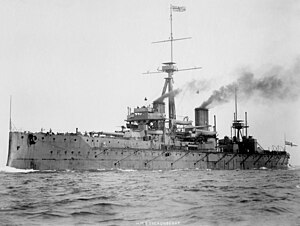User:EmpLeon/Command of the sea

Command of the sea means a navy's strong control over a specific area of the ocean. When a navy has this command, it's so powerful that other navies can't easily attack it. This control can cover nearby waters or even vast oceans, making the country a 'blue-water navy'. It's like having complete control of the skies in air warfare.
Having command of the sea lets a country move its military and merchant ships freely, while its opponents either stay in port or try to avoid it. This also allows for amphibious operations to expand strategic options on land. For example, the British Royal Navy controlled the sea from the 18th to the early 20th centuries, benefiting trade and wartime movements. After World War II, the United States Navy gained this control.
Only a few navies are strong enough to operate as blue-water navies. Some countries are upgrading their less powerful navies to become blue-water navies, which might lead to increased use of ocean areas under other countries' control, potentially affecting maritime regulations.